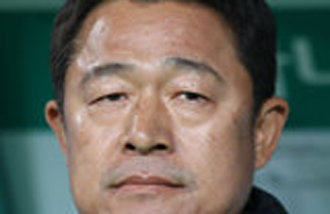Appellate Courts Reduce Jail Terms of Legislators Involved in Slush Fund Scandal
Appellate Courts Reduce Jail Terms of Legislators Involved in Slush Fund Scandal
Posted September. 22, 2004 21:59,
Appellate courts are reducing prison terms for almost all the legislators who have been indicted for illegal fundraising during the last presidential election.
Some criticize such an act by the appellate courts, pointing out that the courts place harsher measures upon ordinary citizens than on politicians. Some say that there are fundamental problems in the current legal system itself.
The Seoul High Court on Wednesday sentenced former Grand National Party (GNP) lawmaker Choi Don-woong to one year in prison for violating the Political Fund Act. Choi was indicted for playing a key role in illicitly collecting 58 billion won from numerous corporations during the presidential election in 2002. Choi had been sentenced to three years of imprisonment in the first trial in May.
Ahn Hee-jung, the former presidential aide who had been referred to as the right arm of President Roh Moo-hyun, was also sentenced to one year of imprisonment by the appellate court, instead of the two years and six months that the court of first instance had announced. The amount of money Ahn was fined was also reduced from 1.3 billion won to 590 million won. Since Ahn, who is charged with receiving 5 billion won in slush funds for the presidential election, was arrested in December 2003, he is likely to be released soon.
The jail term for Suh Jung-woo, a lawyer who served as a legal adviser to Lee Hoi-chang, the former presidential candidate of the opposition Grand National Party, was also extenuated from four years to two years in the appellate court. Kim Young-il, former secretary general of the GNP who had been sentenced to three-and-a-half years in prison, got a reduced sentence of one-and-a-half years.
Lee Sang-soo, the ex-Uri Party lawmaker who had served as secretary general in Rohs campaign, had received one year of imprisonment in the first trial, but he appealed and was released on parole. Former Millennium Democratic Party legislator Lee Jae-joung, who had been sentenced to one year of imprisonment and three years of probation, only received a fine from the appellate court. The case of Lee Kwang-jae, the former presidential aide to Roh who was ordered to pay a fine of 30 million won in the first trial, is still pending an appeal.
According to the Court Administration Office, the original sentences were reversed in 54.6 percent of criminal cases last year. Out of 61,800 criminal cases that had been appealed, 31,600 had their original decision reversed. Most cases received mitigation of jail terms.
However, almost 100 percent of politicians involved in the slush fund scandal received remissions by appealing to the higher court. People say that this is because harsher measures are applied to ordinary citizens.
I am disappointed at the courts decision, because the result of the prosecutors investigation into the slush fund scandal reflected the citizens long-cherished dreams of eradicating corruption in politics, an official of the prosecutors office said.
The same things will continue to happen within the current legal system. The maximum punishment allowed by the current Political Fund Act is three years of imprisonment. No matter how grave the degree of violation is, it is difficult to be condemned for more than three years. This makes extenuation of prison terms easier.
Also, the period of statutory limitations for violating the Political Fund Act is three years, which is much shorter than that of other crimes. Because of this, Kim Han-gill of the ruling Uri Party, who admitted receiving 100 million won in illegal political funds for expenses in an opinion poll survey during the general election in 2000, is unlikely to be prosecuted. Kim received the money from Cho Dong-man, ex-vice chairman of the Hansol Group.
Legal circles and civic groups are accusing legislators of designing the Political Fund Act, which is directly related to activities of lawmakers themselves, in such a way so that it is difficult for the courts to give heavy sentences to the acts violators.
woogija@donga.com
Headline News
- Iran blames US sanctions for helicopter crash that killed president
- Pres. Yoon vetoes investigation into death of marine
- “Croatia Holds a Business Forum in Seoul…Looking forward to the development of trade relations”
- Samsung names new chief for semiconductor business
- Seoul City plans to expand welfare benefits







